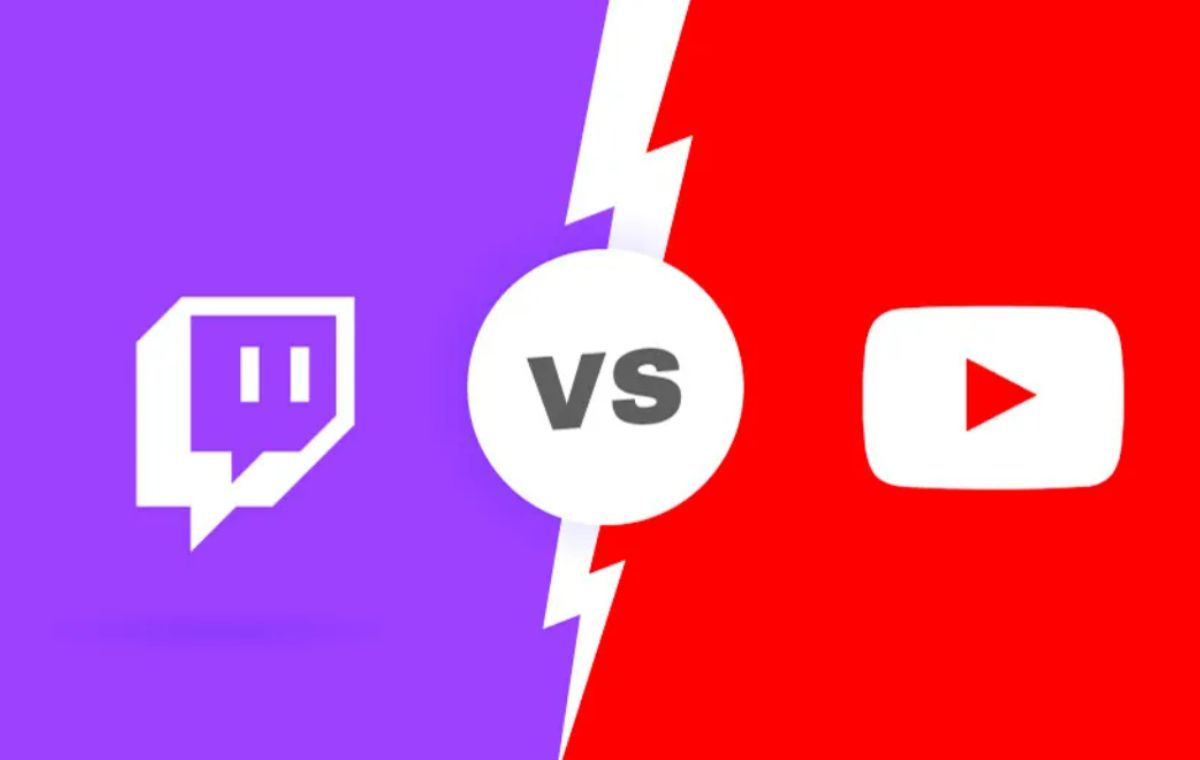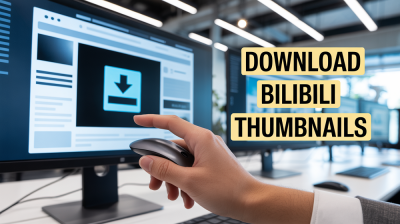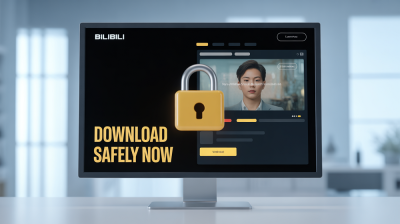With the rise of live streaming, two major platforms have taken the world by storm: Twitch and YouTube. Each has its unique characteristics that appeal to different audiences and content creators. But when it comes to choosing between them, which one stands out as the superior option? In this post, we’ll delve into the ins and outs of Twitch, examining its features, audience, and what makes it tick. So let’s jump right in!
Overview of Twitch

Twitch is a live streaming platform that has firmly established itself as the go-to space for gamers and content creators around the globe. Launched in 2011, it has evolved significantly, catering to a variety of entertainment genres beyond just gaming. Here’s what sets it apart:
- Focus on Live Streaming: Unlike its counterparts, Twitch is primarily designed for real-time interaction, allowing creators to engage with their audience instantaneously.
- Gaming Hub: Although Twitch has branched out into music, cooking, and talk shows, its roots lie in gaming. It’s the first choice for gamers wanting to showcase their skills or build a community.
- Community Interaction: Features like chat rooms, emotes, and interactive features allow viewers to communicate with streamers and other fans, creating a sense of community.
- Monetization Options: Twitch offers various ways for creators to earn from their streams, including subscriptions, ad revenue, and Bits—a form of virtual currency viewers can use to support their favorite streamers.
In a world where engagement is key, Twitch’s real-time interaction model makes it a popular platform for those who thrive on community and spontaneity. Its robust features and gaming-first approach continue to attract millions of users and creators alike. However, is it enough to claim the title of the superior platform? Let's explore further.
Also Read This: Understanding 2160p Resolution and Its Relationship with 4K on YouTube
Overview of YouTube

YouTube, launched in 2005, has evolved into one of the most significant video-sharing platforms worldwide. It's not just a place for cat videos and music—you can find everything from educational content to live streaming of popular events. As a platform, YouTube allows users to create, upload, and monetize their content, targeting a broad spectrum of audiences. With billions of active users, it boasts a diverse community of creators, each bringing their unique flavor to the platform.
YouTube lets creators engage with their audience through comments, live streams, and community posts, making it a social network much like Twitch. In fact, YouTube has a huge library of previously recorded live broadcasts that can be searched and viewed at any time, which appeals to those who prefer watching on-demand rather than live.
Benefits of Using YouTube:
- Monetization Opportunities: Through ad revenue, memberships, and super chats, creators can make money.
- Vast Reach: Billions of active users, making it easy to find viewers.
- Versatile Content Types: From vlogs to documentaries, there’s something for everyone.
- SEO Benefits: YouTube is the second-largest search engine, improving discoverability.
However, it’s not just all rainbows; YouTube has its downsides too. The algorithm is often critiqued for being unpredictable, making it hard for new creators to gain traction. But overall, it's a powerful platform for content creators looking to reach a vast audience with a wide variety of content.
Also Read This: How Imago Images Simplifies the Search for Specific Content
Key Features of Twitch
Twitch, on the other hand, is primarily focused on live streaming, particularly in the gaming sector—though that’s not all it offers. Launched in 2011, it quickly gained traction among gamers who wanted to showcase their skills while interacting with an audience in real-time. This focus on real-time interaction creates a unique community vibe that sets it apart from other platforms.
Notable Features of Twitch:
- Live Streaming: Twitch specializes in live content, allowing for immediate audience interaction.
- Chat Functionality: Audience members can communicate via chat, enhancing community engagement.
- Subscriber Tiers: Streamers can offer various subscriber levels, each with benefits like exclusive emotes.
- Integrated Gaming Tools: Many streamers use Twitch’s features to engage viewers through polls, stream alerts, and more.
- Special Events: Twitch hosts yearly events like TwitchCon, fostering a sense of community among creators and fans.
While Twitch stands out in its focus on live interaction and community dynamics, it is less versatile than YouTube regarding content types. Most content on Twitch revolves around gaming, though it has expanded to include cooking shows, music performances, and other forms of entertainment. For creators who thrive on immediate engagement, Twitch presents a unique avenue to connect with their audiences.
Also Read This: How Many Users Are on Rumble and Its Growth in 2024
Key Features of YouTube
YouTube is more than just a video-sharing platform; it's a vibrant community filled with endless possibilities for creators and viewers alike. One of its standout features is its massive user base, with over 2 billion logged-in monthly users. This wealth of potential viewers is a massive draw for creators looking to grow their audience.
Another key feature is YouTube’s robust content categorization system. Creators can tag their videos with keywords and choose from various categories, allowing audiences to discover their content easily. This, combined with YouTube's algorithm, ensures that videos can reach viewers interested in similar topics.
YouTube also offers an extensive suite of tools for creators. Here are some noteworthy features:
- Video Editing Tools: Creators can edit videos directly on the platform, making it user-friendly for those who may not have advanced editing skills.
- Analytics: YouTube provides in-depth analytics that allows creators to gauge the performance of their videos and make data-driven decisions.
- Live Streaming: Similar to Twitch, YouTube also offers live streaming capabilities, allowing creators to connect with their audience in real-time.
- Content Management System: Creators can easily manage their video library, organize playlists, and schedule uploads for optimal engagement.
Lastly, the platform supports a range of content formats, including vlogs, tutorials, music videos, and even short films, allowing creators to showcase their talent in various ways. In short, YouTube is a versatile platform that caters to an array of creative styles and offers powerful tools for audience engagement.
Also Read This: How to Crop an Image in OneNote for Better Layouts
Monetization Options on Twitch
For those looking to turn their streaming passion into profit, Twitch provides several avenues for monetization, making it one of the most attractive platforms for gamers and content creators alike. With its focus on live, interactive content, Twitch has created a unique model that allows creators to earn money directly from their viewers.
Here are the primary monetization options available on Twitch:
- Subscriptions: Viewers can subscribe to their favorite channels for a monthly fee, which often comes with perks such as exclusive emotes and ad-free viewing. Streamers typically earn a portion of this subscription fee, providing a steady income source.
- Bits: Bits are a form of virtual currency that viewers can purchase and use to cheer for streamers. Each Bit has a monetary value, allowing viewers to show their support while providing creators with a direct revenue stream.
- Advertising Revenue: Twitch runs ads on streams, and creators earn a percentage of the ad revenue when they meet certain criteria. This can be a lucrative option if the creator has a large audience.
- Sponsored Content: Many creators partner with brands for sponsored streams, where they'll promote products or services during their streams. This can be highly lucrative, especially for channels with a devoted following.
Moreover, Twitch offers an Affiliate and Partner Program, which grants creators access to these monetization options once they meet specific criteria. In essence, Twitch is built around community support, making it both a versatile and rewarding platform for those looking to earn while they stream.
Also Read This: Adding Images to Janitor AI
7. Monetization Options on YouTube
When it comes to monetization, YouTube offers a plethora of options that cater to a diverse range of content creators. Whether you're sketching comedic skits or uploading gaming walkthroughs, there are several ways to turn your passion into profit.
First off, the most popular method is through the YouTube Partner Program, which lets creators earn money from ad revenue. To qualify, you need 1,000 subscribers and 4,000 watch hours over the past 12 months. Once you're in, your videos can display ads, which can lead to a steady stream of income.
Besides ads, YouTube also allows creators to monetize their channels through:
- Channel Memberships: Subscribers can join your channel for a monthly fee, gaining access to exclusive perks like badges, emojis, and members-only content.
- Super Chat and Super Stickers: During live streams, viewers can pay to have their messages highlighted, giving them a unique way to connect with you.
- YouTube Premium Revenue: Creators earn a portion of subscription fees from YouTube Premium members who watch their content—no ads included!
- Merchandising: YouTube makes it easier than ever to promote and sell your merchandise directly through your channel.
In essence, YouTube’s monetization options are vast and flexible, allowing creators to diversify their income streams and maximize their earning potential. This makes it a compelling choice for many aspiring influencers and content creators!
Also Read This: What is the Ideal Size for a YouTube Thumbnail
8. Community and Audience Engagement
Engaging with your audience is crucial for building a loyal following, and YouTube excels in providing tools that foster community interaction. The platform encourages creators not just to share their content but to connect with viewers on a more personal level.
One of the standout features is the comment section. Here, viewers can leave feedback, ask questions, or simply share their thoughts on your videos. As a creator, responding to these comments cultivates a sense of community. Did someone leave a funny remark? Show them you care by giving a thumbs up or responding directly!
You can also utilize features like:
- Community Tab: This is a dedicated space where creators can post updates, polls, or even behind-the-scenes content to keep the conversation flowing.
- Live Streaming: Engaging with your audience in real-time during live streams allows for immediate interaction. The chat becomes a hub of discussion, and your real-time responses help foster a sense of belonging.
- Collabs and Cross-Promotion: Partnering with other creators can exponentially increase your reach while providing audiences with exciting content.
In summary, YouTube offers a comprehensive suite of tools designed to nurture community and engagement. When creators actively participate in conversations with their viewers, they transform simple watchers into committed fans. This sense of community can be a significant draw on the platform!
Also Read This: Does Getty Images Accept AI-Generated Images? Exploring the Submission Criteria
User Interface and Experience
When it comes to streaming platforms like Twitch and YouTube, the user interface (UI) and overall user experience (UX) play a pivotal role in attracting and retaining users. Both platforms have distinct designs and navigation styles that cater to different audience preferences. Let’s dive into the key elements that define the user experience on each platform.
Twitch UI:
- Dark Theme: Twitch employs a dark-themed interface that many users find appealing during long streaming sessions, particularly during nighttime.
- Real-Time Interaction: The chat feature is a standout, allowing viewers to interact with streamers and each other in real-time. This fosters a sense of community.
- Simplistic Navigation: Twitch’s navigation is focused heavily on live content. Users can easily find streams and categories tailored to their interests.
YouTube UI:
- Bright and Versatile: YouTube offers a brighter interface with more color options, which may appeal to users looking for a more dynamic visual experience.
- Robust Search Functionality: YouTube excels in discoverability with its advanced search features, making it easier to find specific content or channels.
- Customizable Experience: Users can easily subscribe to channels and receive notifications, allowing for a personalized content feed based on their interests.
In conclusion, while both Twitch and YouTube offer distinct user interfaces that cater to their target audiences, the choice between them largely depends on what you're looking for: a community-focused, live experience or a versatile, on-demand content library. Each has strengths that shine in different scenarios, catering to user preferences effectively.
Conclusion
So, which platform reigns supreme: Twitch or YouTube? The answer isn’t clear-cut, as both have unique offerings that appeal to varying user needs. Let’s recap some essential points to consider when making your choice:
| Feature | Twitch | YouTube |
|---|---|---|
| Primary Focus | Live streaming and community engagement | On-demand video and content variety |
| User Interface | Dark theme, real-time chat | Bright interface, robust search |
| Monetization | Subscriptions, Bits, donations | Ad revenue, memberships, Super Chats |
Ultimately, your choice should reflect your specific needs and what you value in a streaming platform. If you're all about live interactions, immersing yourself in community spirit, and engaging during broadcasts, Twitch might just be the perfect fit for you. However, if you prefer flexibility, a vast library of content at your fingertips, and the ability to watch whenever you want, YouTube could be the way to go.
No matter which platform you decide on, both Twitch and YouTube continue to grow and evolve, providing exciting new features for streamers and viewers alike. Happy streaming!
 admin
admin








